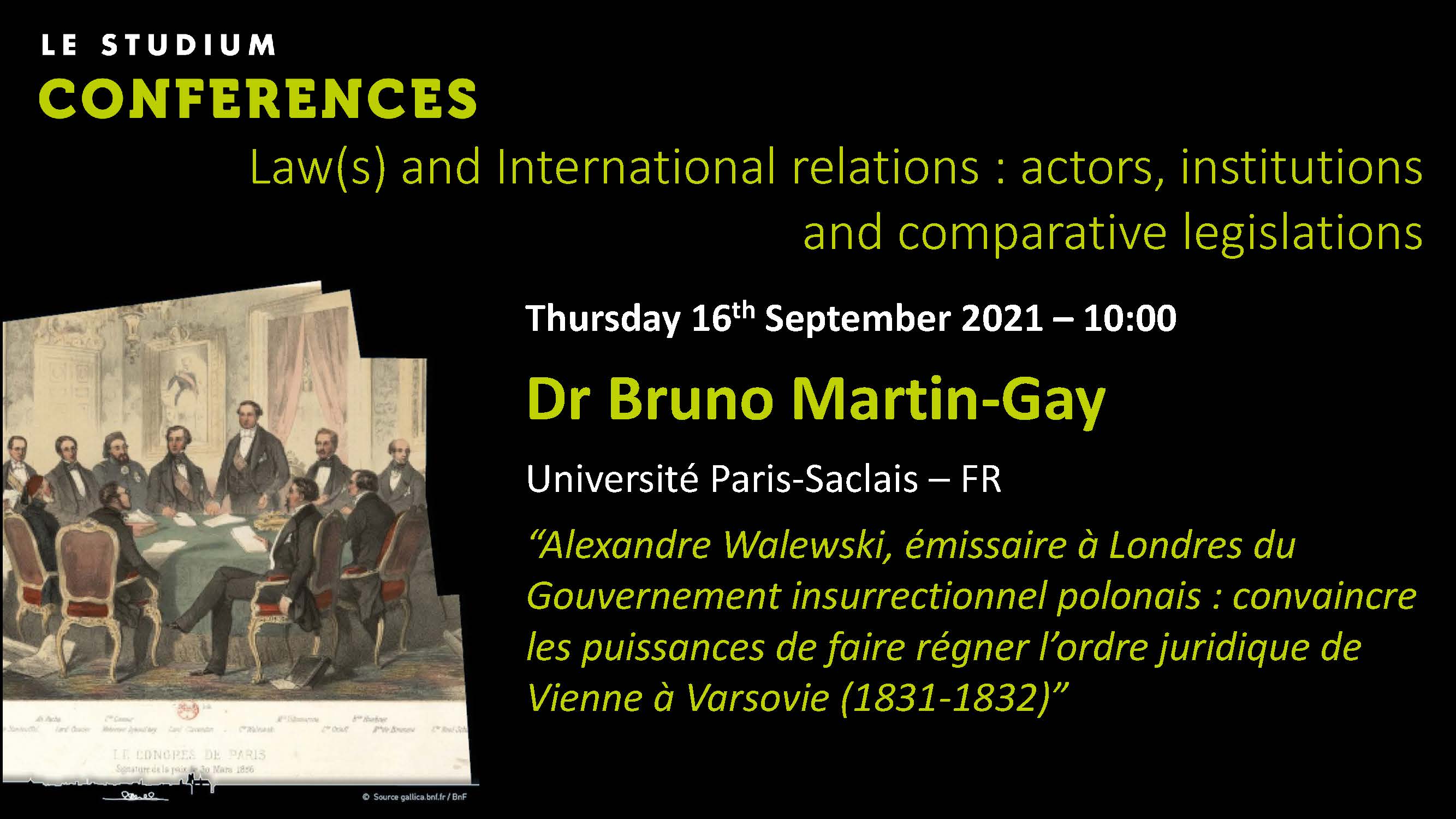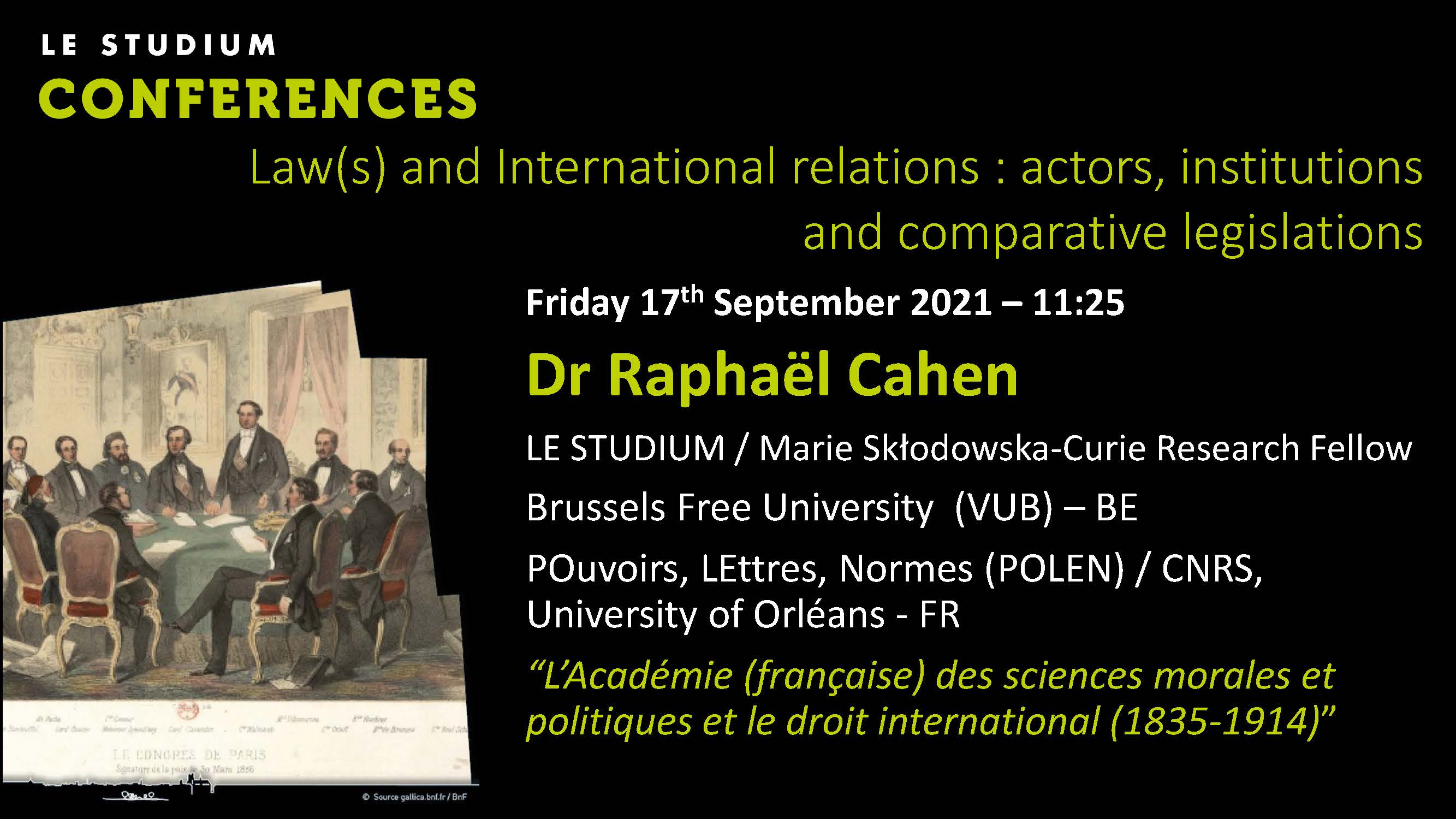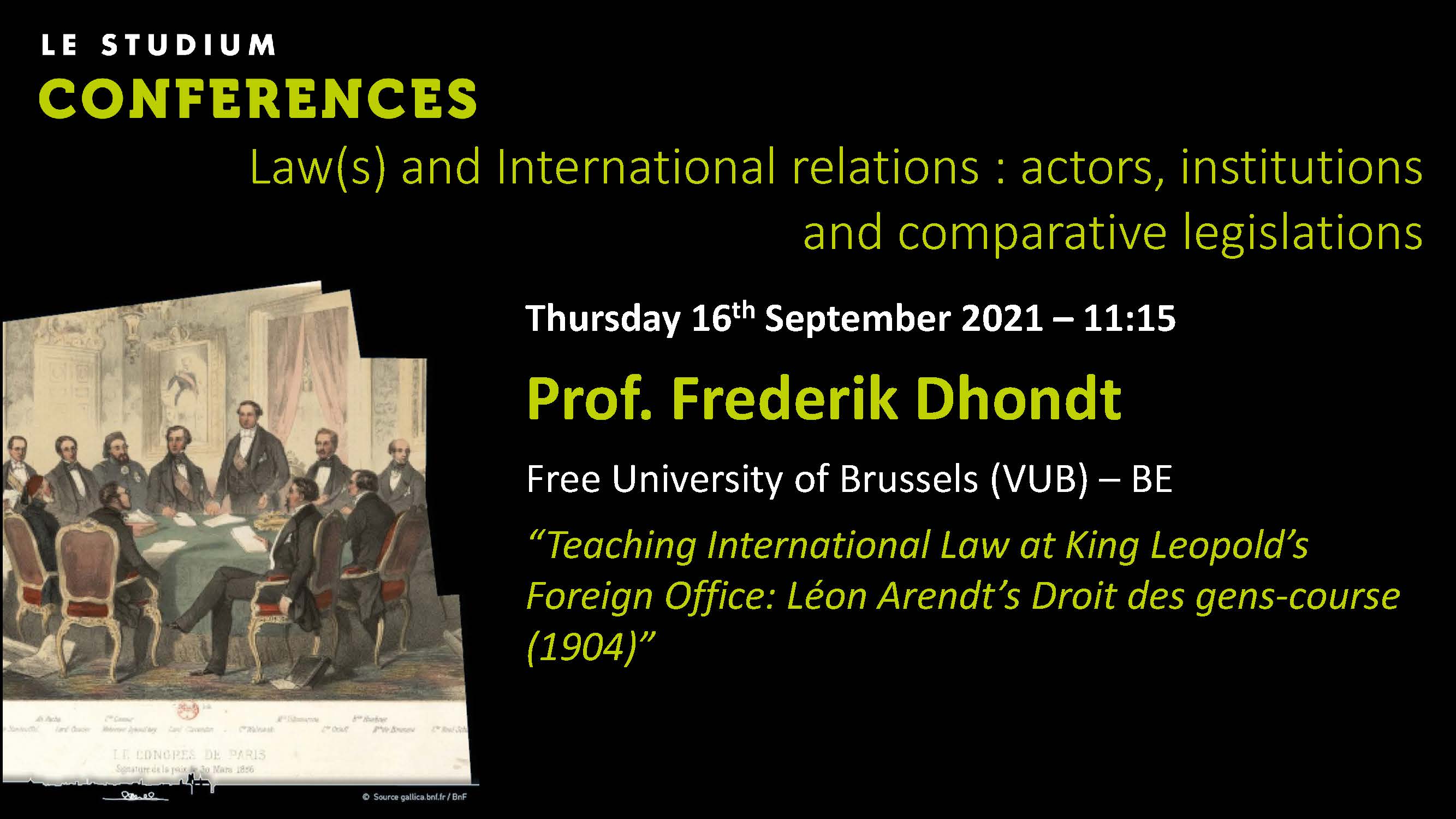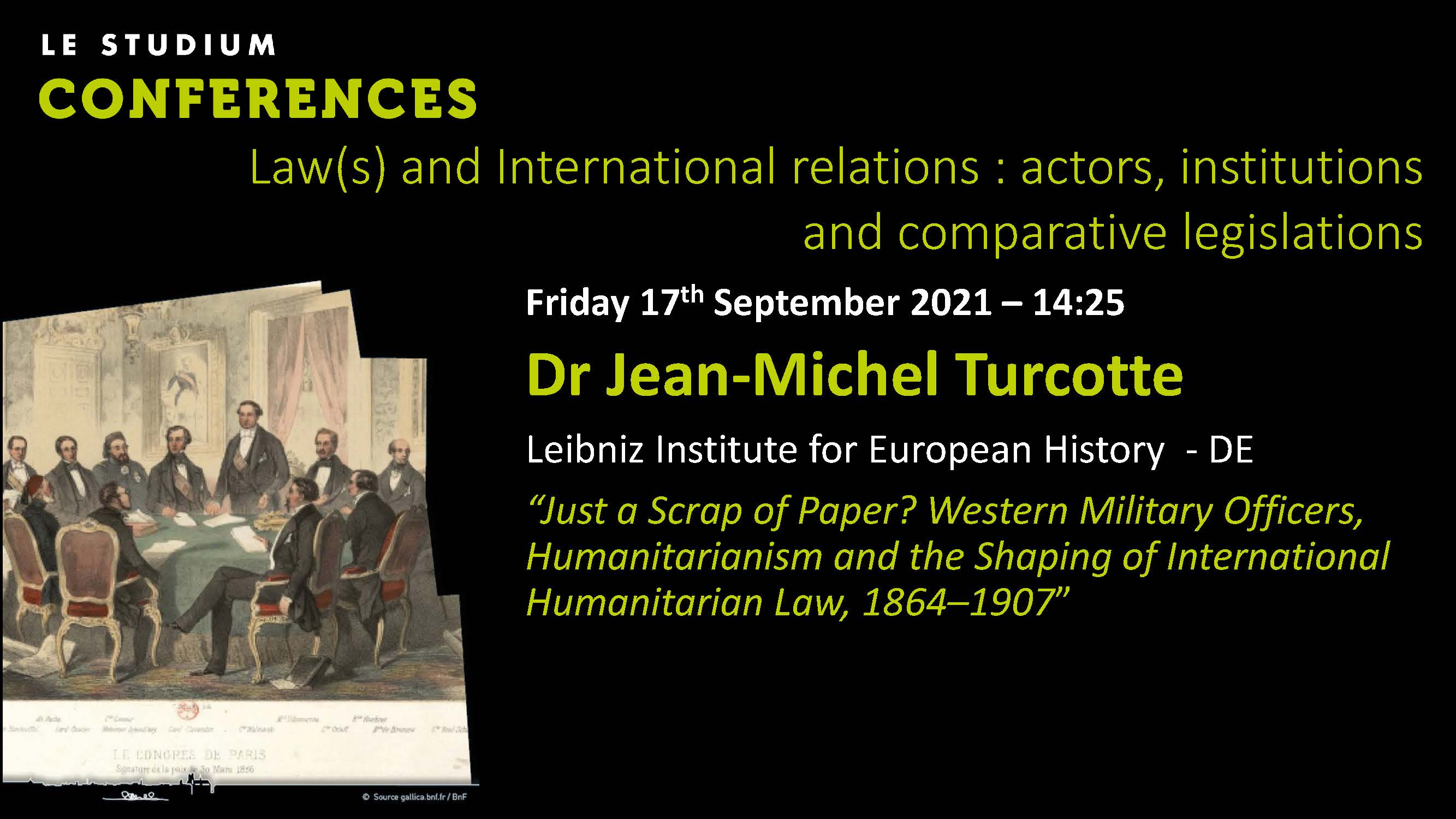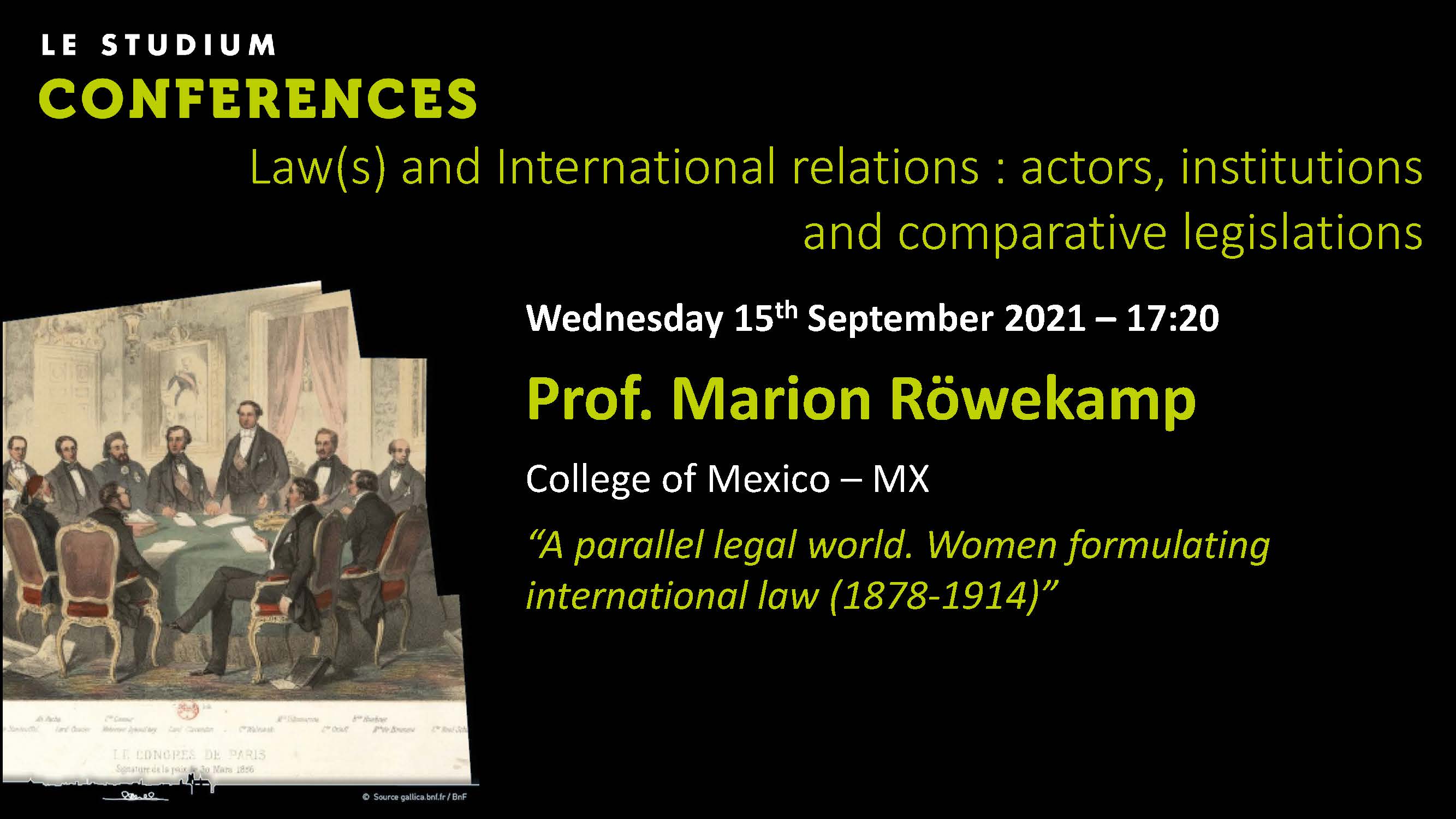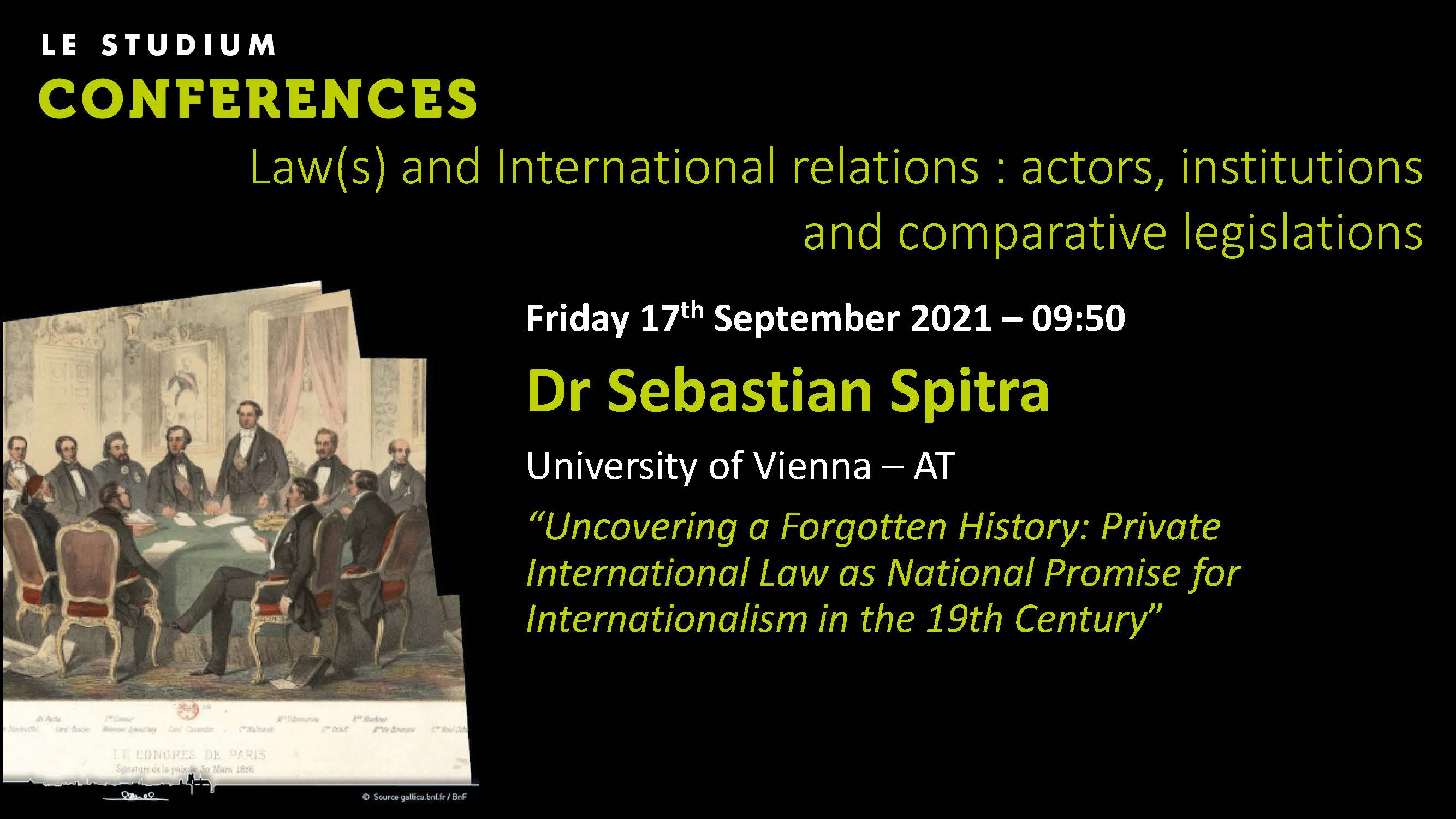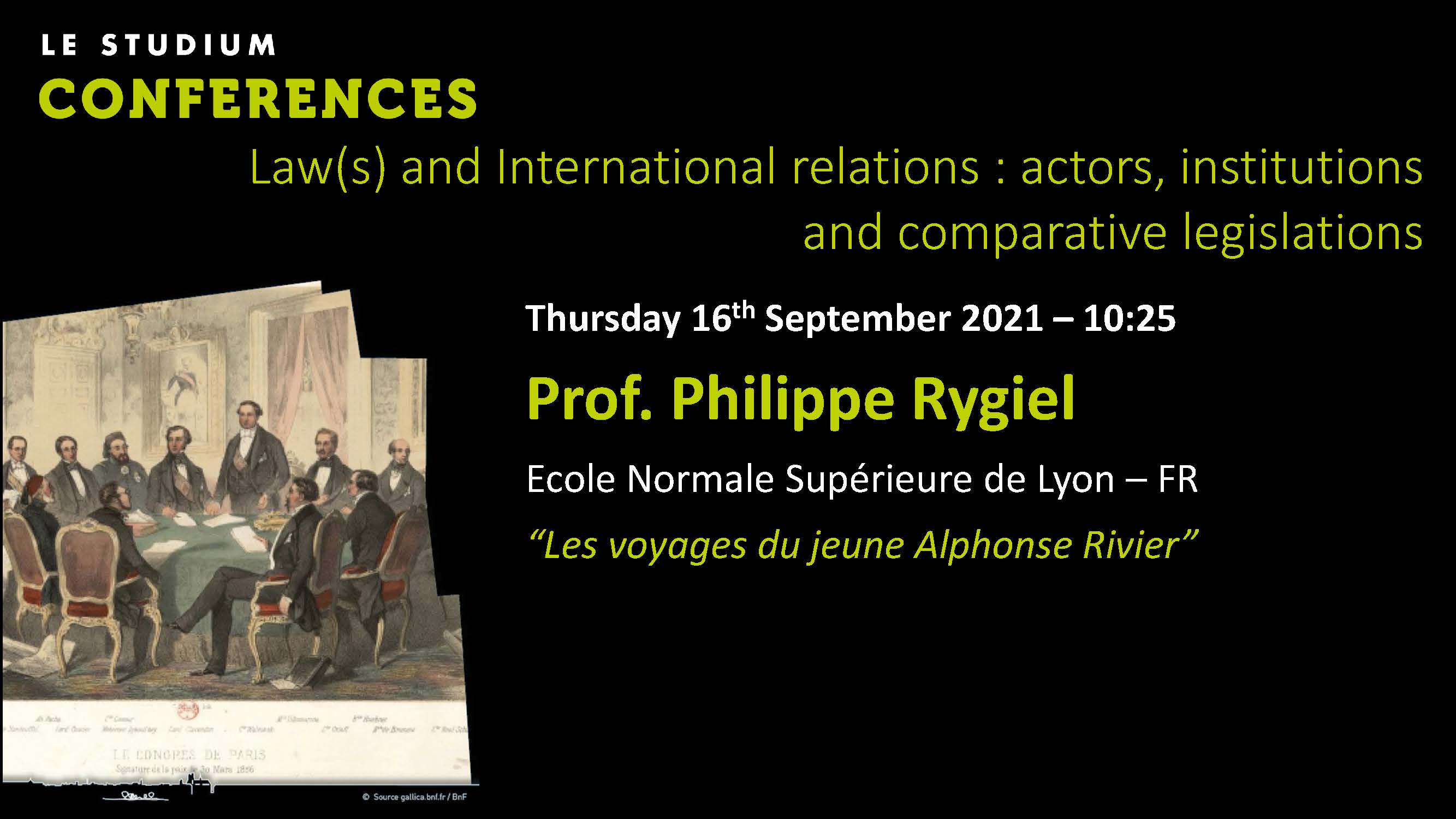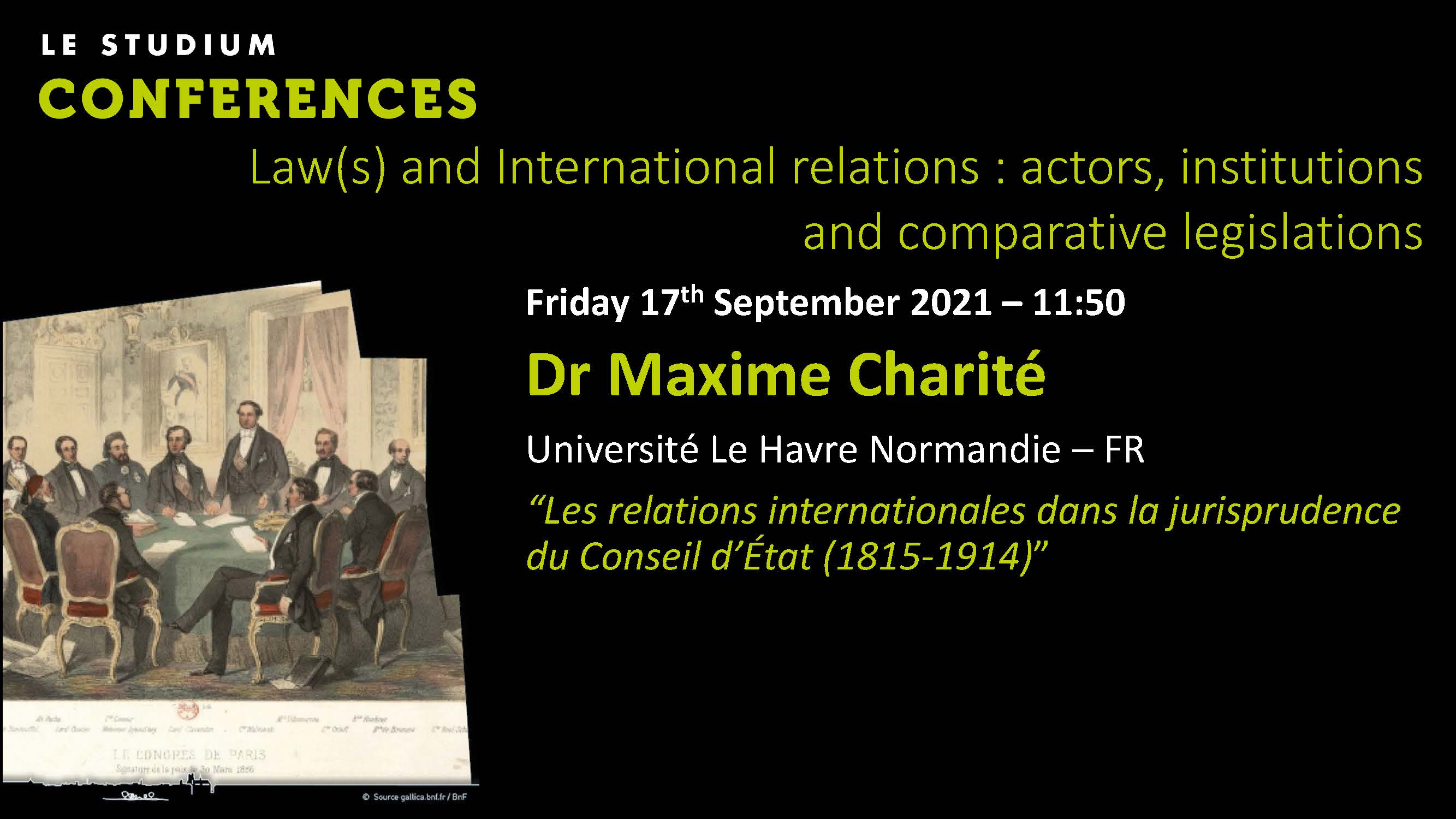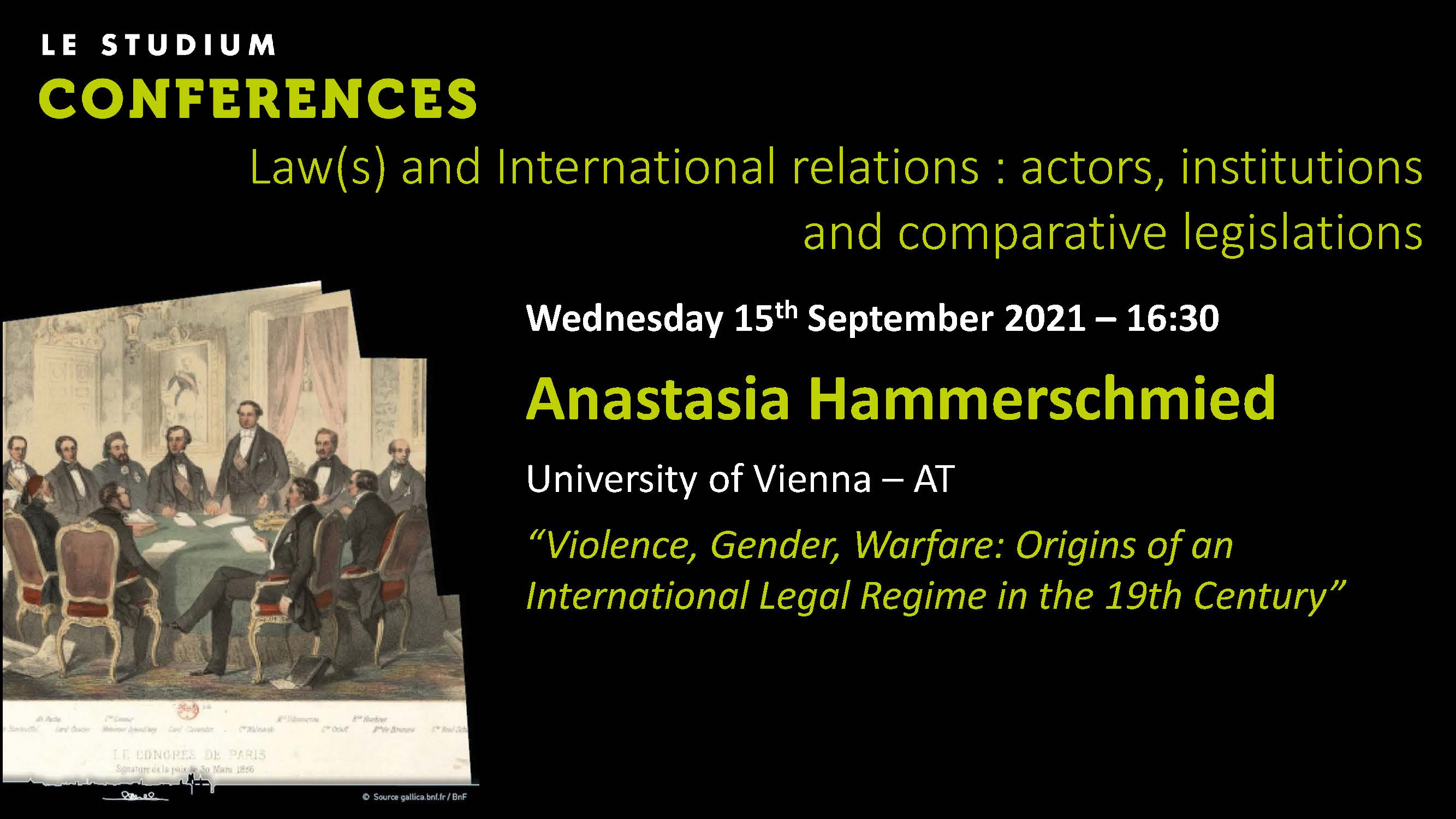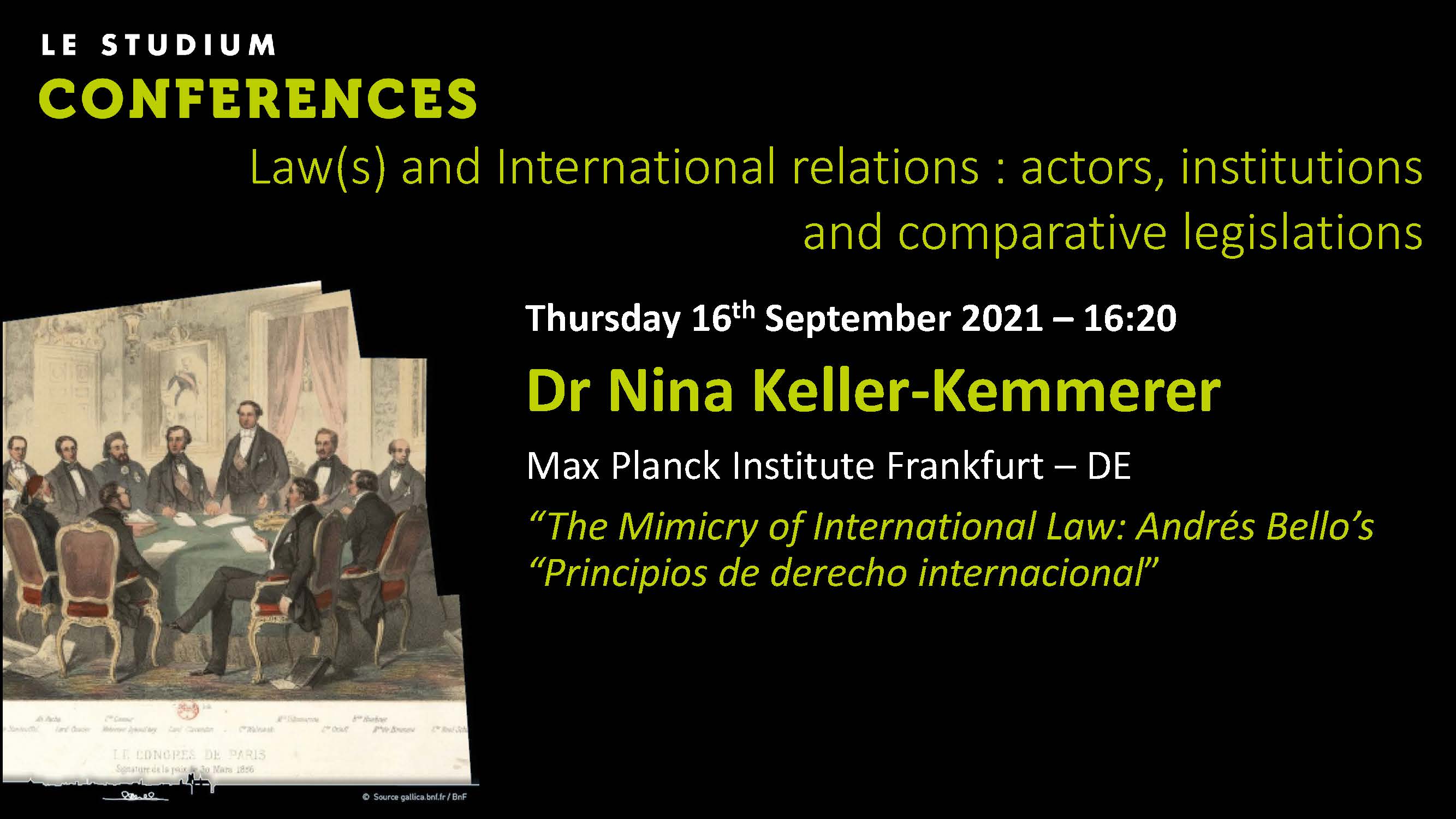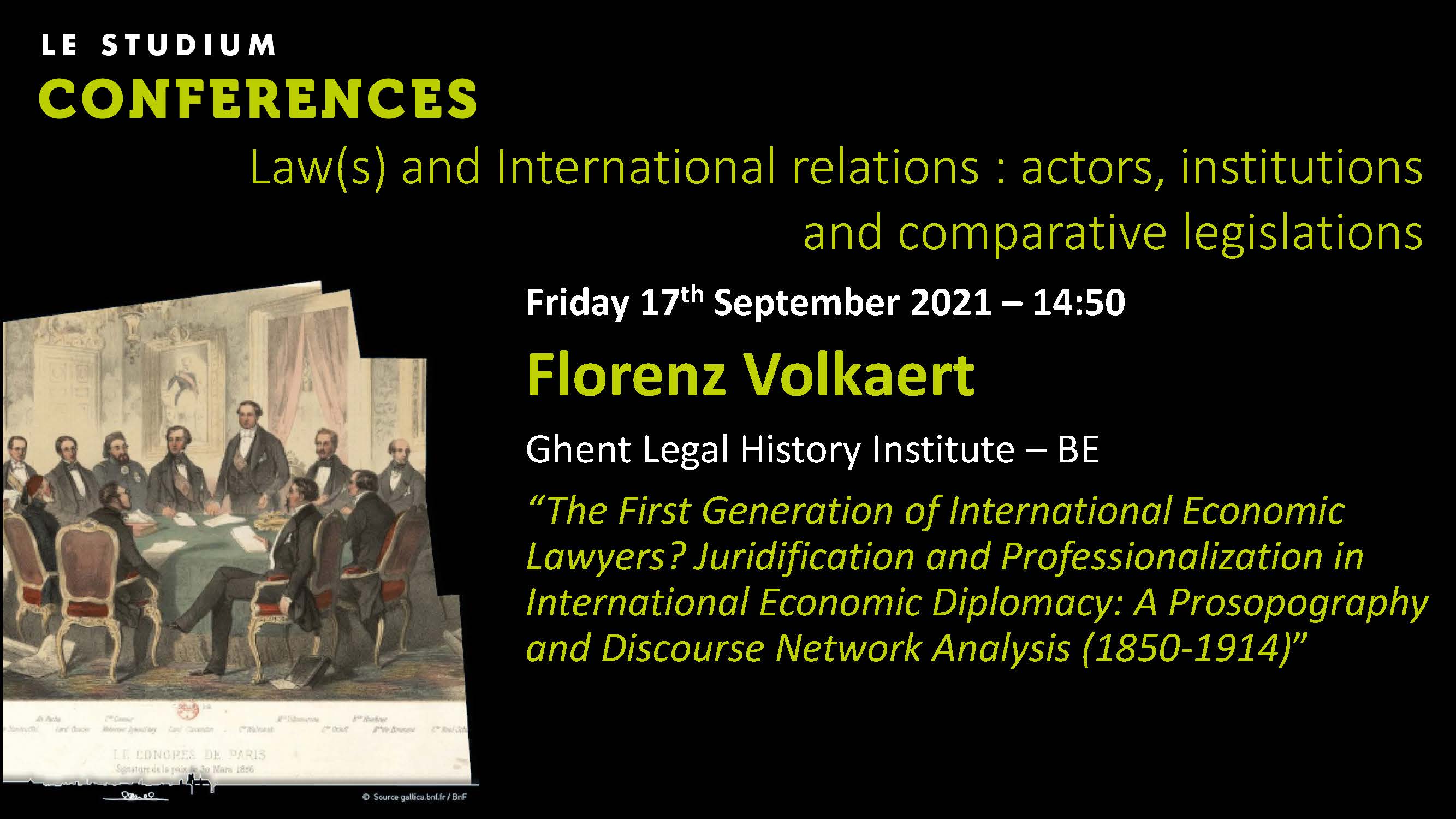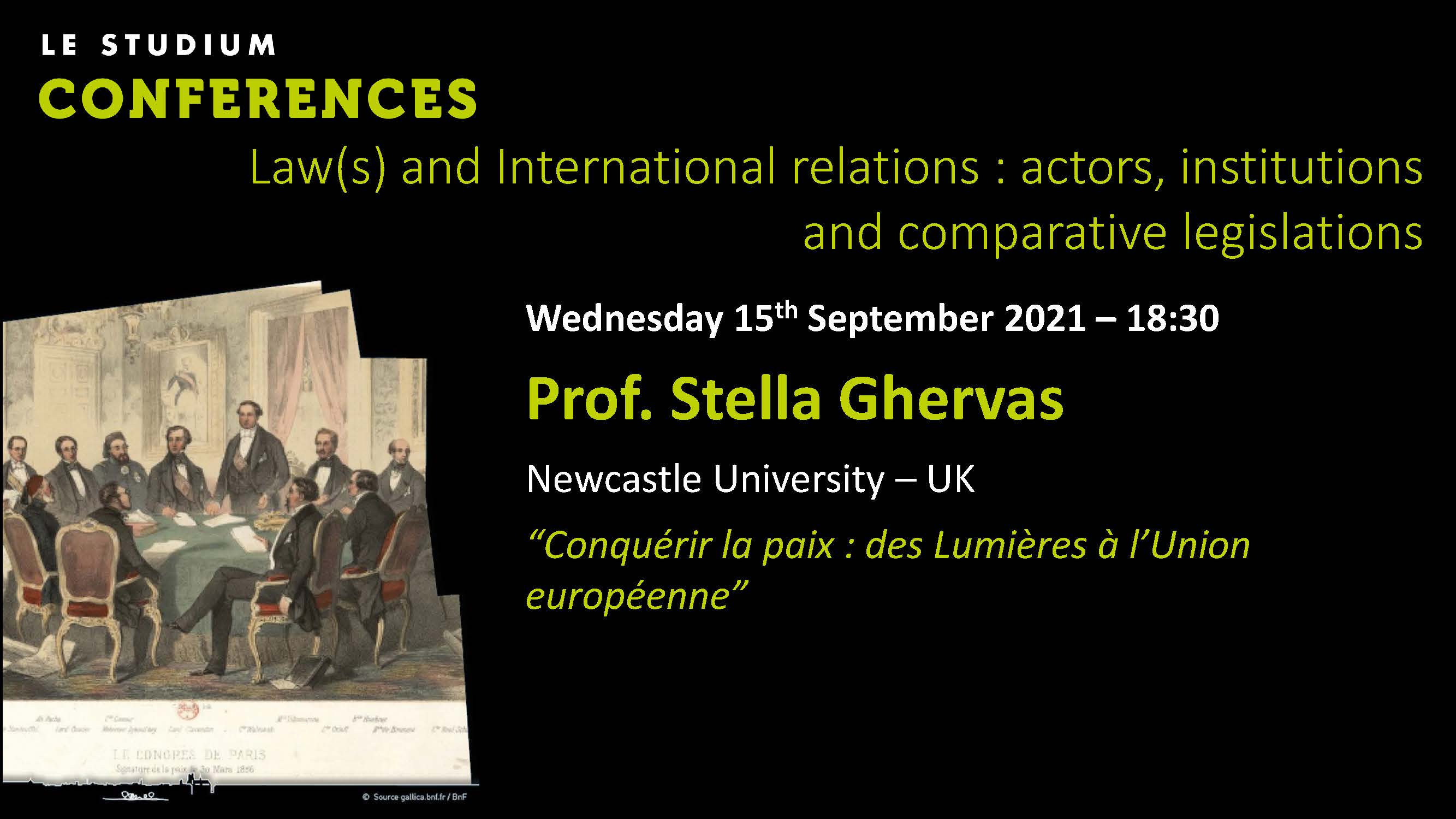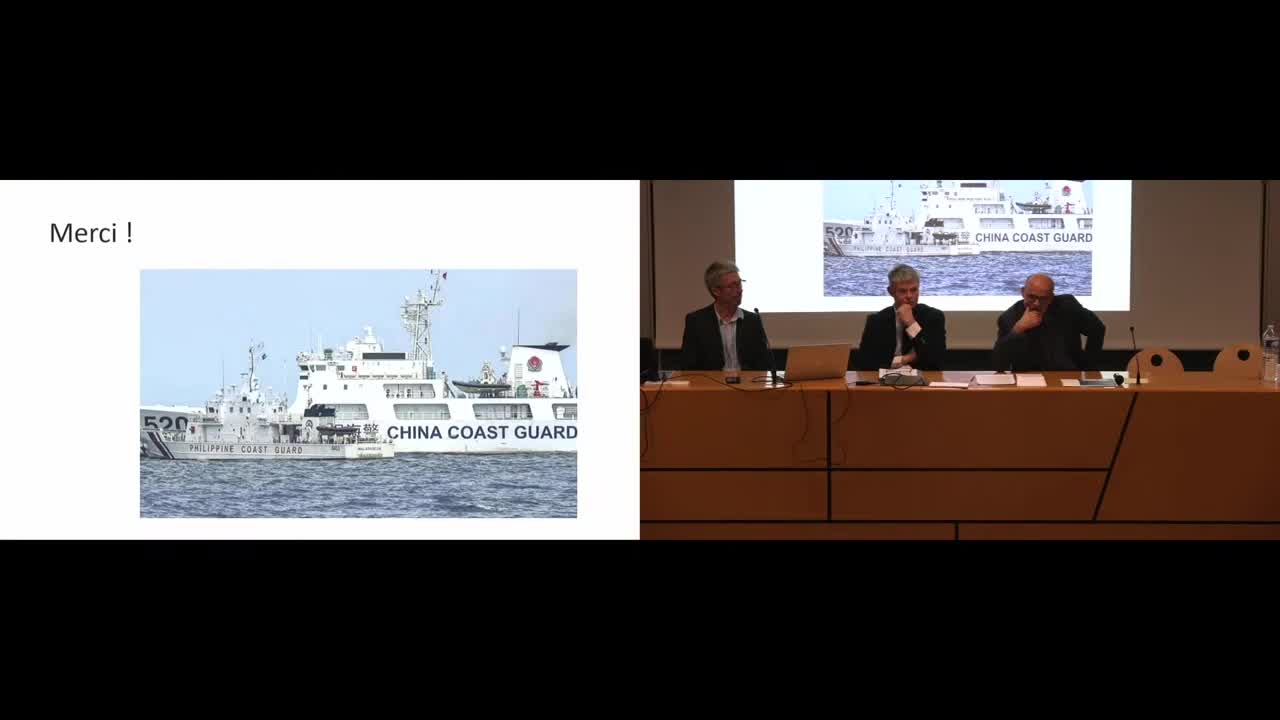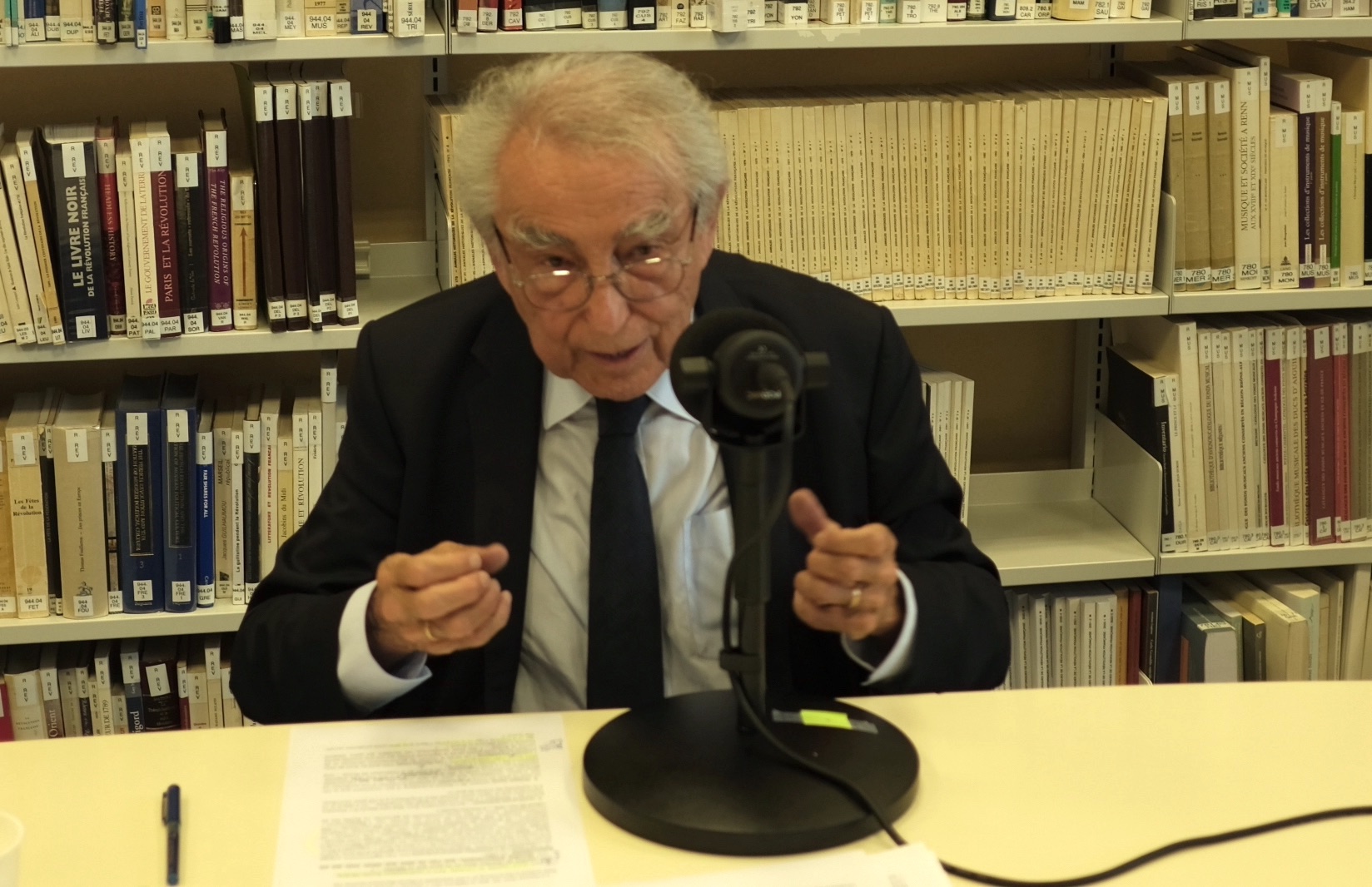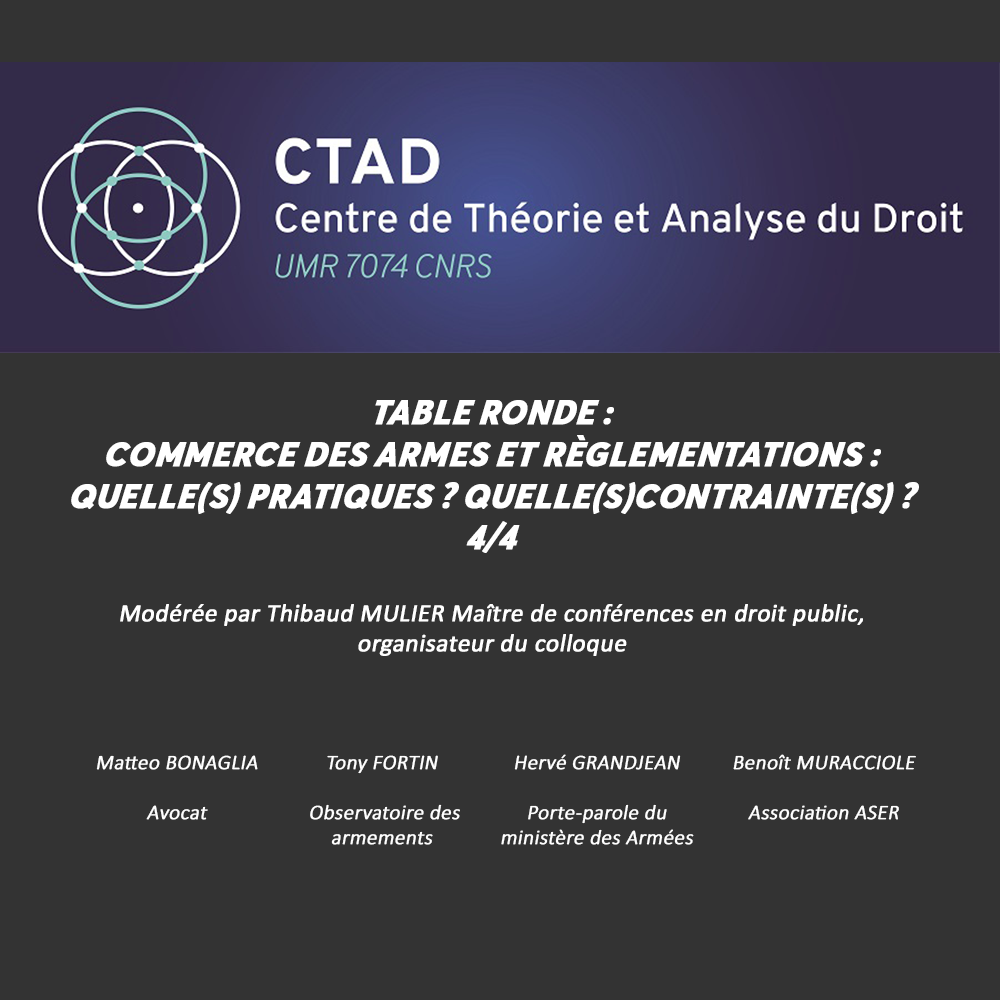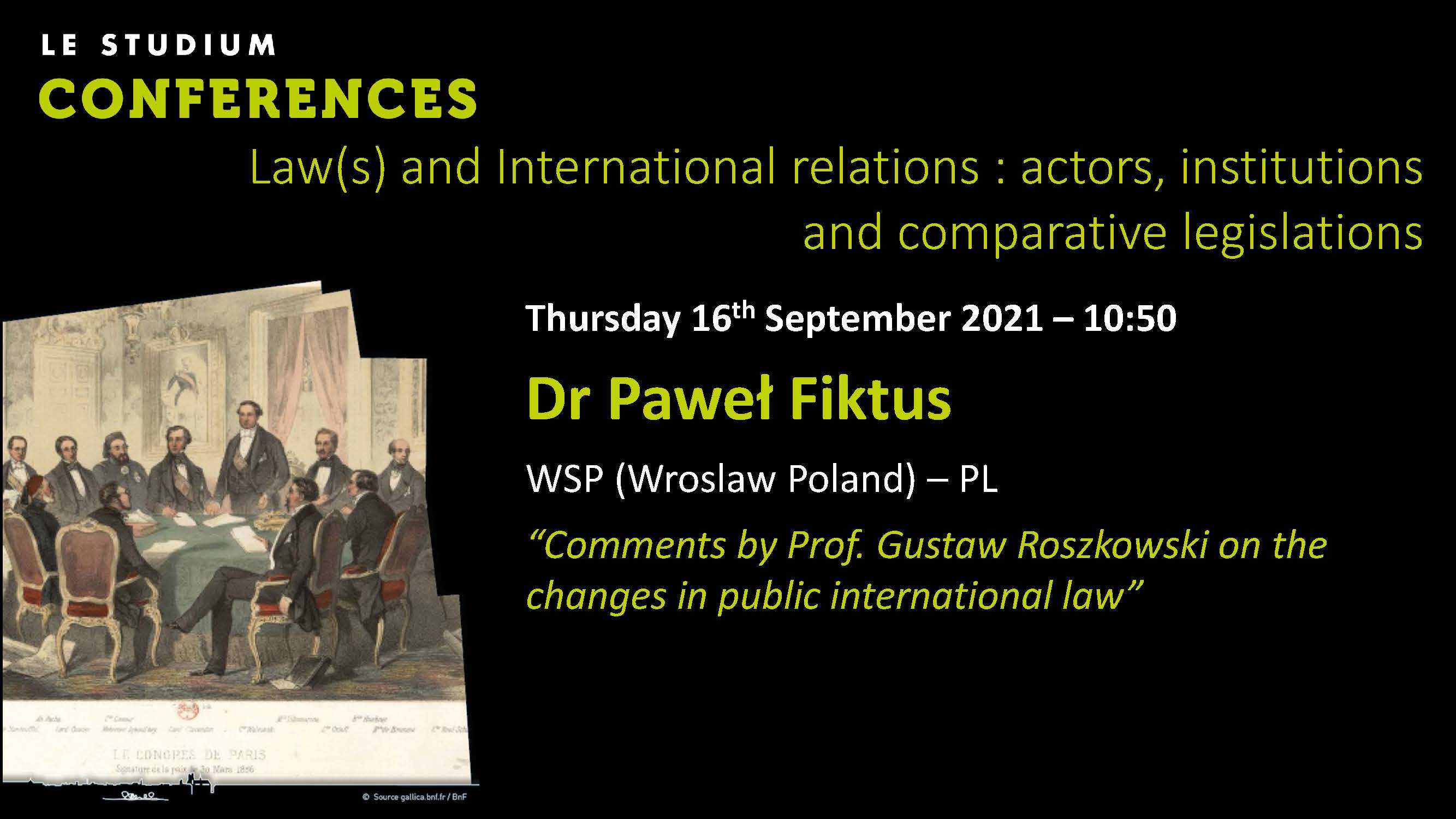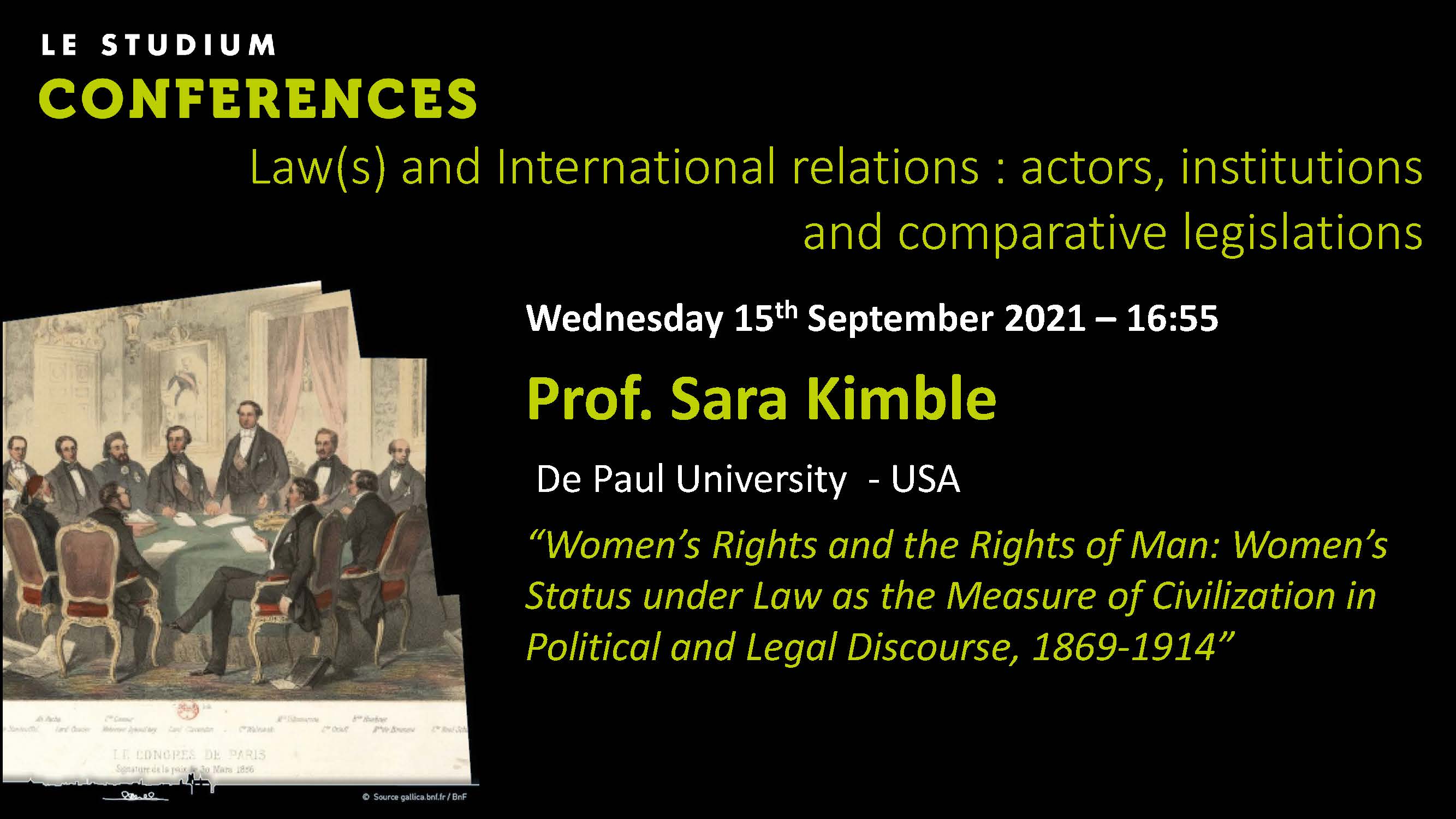Notice
Jean-Romain Ferrand-Hus - Alphonse Royer (1803-1875), penseur méconnu de la codification ottomane
- document 1 document 2 document 3
- niveau 1 niveau 2 niveau 3
Descriptif
On15 March 1856, as the Congress of Paris is opening, Alphonse Royer – a man of letters, an Orientalist and a traveller whohad become director of the Imperial Opera – hands Napoleon III a note on the reform of theOttoman Empire, and more particularly on its civil codification. While thereform of the old Empire and its inclusion in the Concert of Europe is activelydiscussed by diplomats, the author submits to Napoleon III a personal andoriginal vision of Ottoman civil codification. A necessary initiative in thevast movement of secularisation of Ottoman law – that Royer called for –, this codification, far from being conceived as awork of regeneration of the common law of Turkey through the drafting of a codesuperseding Sharia law, is designed on the contrary to combine the Europeanelement with the Ottoman legal tradition, that is based on Islamic law andjurisprudence. For Royer, who is surprisingly a relativist and hostile to anyform of legal acculturation, the "codification of current civil laws inharmony with the needs of the time" cannot mean the more or less faithfultransposition of the provisions of the Napoleonic Code. The temptation of acodification project thought through the prism of the French model isdiscarded, but is soon replaced by another legal model. Thus, on 22 March 1856,just a few days after the Royer note was sent to the Tuileries, acircular issued by the Emperor's Civil Cabinet takes up the main lines of thenote, but adds more evocative terms – instead of the "harmonization" and"codification of civil laws" soberly advocated by Royer, the pompousexpression "Corpus iuris turc" is now preferred to designatethe codifying initiative that fell to the Ottomans. The reference to theJustinian compilations which is therefore made by a jurist in the Emperor'sCabinet and not by Royer, appears to be an authoritative argument that gives adifferent tone to the initial text.
Beyondthe originality and the historical and legal interest of the Royer note, itwill be necessary to assess its posterity, or at least its scope, byconfronting it with the turn taken by the Ottoman codification from the 1860sonwards. Whether it be the first note of 1856, its avatars or the Ottomanprojects that succeeded it until 1868 – when civil codification was officially launched–, all these projects propose a method and a horizonfor civil codification, converging in some aspects and diverging in others.Drawing on the the writings of French agents – thoseof Royer but also of official diplomats – as well as on reference works highlighting the formsof "re-elaboration of ancient models", the challenge of thispresentation will also be to determine whether the invocation of Roman law as alegal model to be imitated is a mere rhetorical device or whether it reveals adeeper reflection on the part of those who use it on how to approach thecodification of a foreign law.
Thème
Dans la même collection
-
Bruno Martin-Gay - Alexandre Walewski, émissaire à Londres du Gouvernement insurrectionnel polonais…
At the Congress of Vienna, the Polish question was a tricky one and depended mainly on the Russian position. After Napoleon’s escape from Elba, the discussions became harsher and Tsar Alexander I
-
Raphaël Cahen - L’Académie (française) des sciences morales et politiques et le droit international…
From his foundation in 1832 until Word War I, the French Académie des sciences morales et politiques has been a place of Knowledges where the discipline of international law has been constructed.
-
Frederik Dhondt - Teaching International Law at King Leopold’s Foreign Office: Léon Arendt’s Droit …
The private papers of Léon Arendt (1848-1924), director of Political Affairs in the Belgian Foreign Office from 1896 to 1912, offer a unique insider’s view on an often little-studied aspect: the in
-
Jean-Michel Turcotte - Just a Scrap of Paper? Western Military Officers, Humanitarianism and the Sh…
This presentation takes a look at my new book project focusing on the history of the Geneva Conventions. The first Convention for the Amelioration of the Condition of the Wounded in Armies in the
-
Marion Röwekamp - A parallel legal world. Women formulating international law (1878-1914)
The process of women formulating international law started with congresses held by the transnational women's movement. Here female specialists met, exchanged legal knowledge, collected and compared
-
Sebastian Spitra - Uncovering a Forgotten History: Private International Law as National Promise fo…
The historical study of private international law is an often-neglected topic within the broader turn to the history in international law. Only a few works explore the dogmatic, intellectual and
-
Philippe Rygiel - Les voyages du jeune Alphonse Rivier
Alphonse Rivier (1835-1898) is a forgotten member of the generation of internationalists who participated in the institutionalization of international law. Author of treatises, translator of Tobias
-
Maxime Charité - Les relations internationales dans la jurisprudence du Conseil d’État (1815-1914)
Council of State case law appears as an original prism for understanding and measuring the relationship between international relations and law(s) between 1815 and 1914. During this century, this
-
Anastasia Hammerschmied - Violence, Gender, Warfare: Origins of an International Legal Regime in th…
"The honor and rights of the family ... must be respected", states Article 46 of the Hague Convention of 1899/1907, a phrase used by earlier studies on sexual violence in war to reject a
-
Nina Keller-Kemmerer - The Mimicry of International Law: Andrés Bello’s “Principios de derecho inte…
It was the creole intellectual Andrés Bello who first promoted the European doctrines of international law in Hispano-America. 1811 he went together with Simón Bolívar on a diplomatic mission to
-
Florenz Volkaert - The First Generation of International Economic Lawyers? Juridification and Profe…
Contemporary international economic law is considered an autonomous subdiscipline of international law administered by an epistemic community of international lawyers and economists, separate from
-
Stella Ghervas - Conquérir la paix : des Lumières à l’Union européenne
L’Europe n’a guère connu de longs moments de paix dans son histoire. Dans cette conférence grand public, basée sur son dernier livre Conquering Peace : From the Enlightenment to the European Union
Sur le même thème
-
Mer de Chine du Sud : revendications d'espaces maritimes contradictoires et lectures divergentes du…
LasserreFrédéricAdoptée à Montego Bay le 10 décembre 1982 et entrée en vigueur le 16 novembre 1994, la Convention des Nations Unies sur le Droit de la Mer (CNUDM) compte aujourd’hui 169 Parties, dont l’Union
-
Crimes de guerre
CotteBrunoBruno Cotte, haut magistrat français, qui a présidé durant plusieurs années une chambre de première instance à la Cour pénale internationale de La Haye, intervient sur la notion de « Crimes de guerre
-
Colloque exportations d’armements et droit public. Encadrer l'exportation (Partie 3/4)
COLLOQUE EXPORTATIONS D’ARMEMENTS ET DROIT PUBLIC Troisième Panel : ENCADRER L’EXPORTATION Présidé par Jean-Louis Halpérin, Professeur, Directeur du CTAD EXPORTATIONS D’ARMES ET ÉTAT DU DROIT
-
Colloque exportations d’armements et droit public. Introduction et Pourquoi exporter ? (Partie 1/4)
COLLOQUE EXPORTATIONS D’ARMEMENTS ET DROIT PUBLIC OUVERTURE DU COLLOQUE Anne-Laure CHAUMETTE-VAURS (Maître de conférences HDR en droit public – CEDIN ; Co-directrice de l’UFR DSP) et Thibaud MULIER
-
Colloque exportations d’armements et droit public Table ronde Commerce des armes et règlementation,…
COLLOQUE EXPORTATIONS D’ARMEMENTS ET DROIT PUBLIC TABLE RONDE : COMMERCE DES ARMES ET RÈGLEMENTATIONS : QUELLE(S) PRATIQUES ? QUELLE(S)CONTRAINTE(S) ? Modérateur : Thibaud MULIER (Maître de
-
Colloque exportations d’armements et droit public. Décider et contrôler l'exportation (Partie 2/4)
COLLOQUE EXPORTATIONS D’ARMEMENTS ET DROIT PUBLIC Second Panel : DÉCIDER ET CONTRÔLER L’EXPORTATION Présidé par Arnaud SÉE (Professeur de droit public – CRDP) LA DÉCISION D’EXPORTER : DU CONTRÔLE
-
Paweł Fiktus - Comments by Prof. Gustaw Roszkowski on the changes in public international law
The presented topic refers to the first point and will concern one of the leading but somewhat forgotten lawyer – Gustaw Roszkowski associated with the University of Lviv. In addition to his
-
Maxime Charité - Les relations internationales dans la jurisprudence du Conseil d’État (1815-1914)
Council of State case law appears as an original prism for understanding and measuring the relationship between international relations and law(s) between 1815 and 1914. During this century, this
-
Sara Kimble - Women’s Rights and the Rights of Man: Women’s Status under Law as the Measure of Civi…
This paper explores the conceptualization of women’s rights as a measure of the advancement of societies in comparative perspective through political and legal discourse from the 1860s to 1914. My
-
Nina Keller-Kemmerer - The Mimicry of International Law: Andrés Bello’s “Principios de derecho inte…
It was the creole intellectual Andrés Bello who first promoted the European doctrines of international law in Hispano-America. 1811 he went together with Simón Bolívar on a diplomatic mission to
-
Florenz Volkaert - The First Generation of International Economic Lawyers? Juridification and Profe…
Contemporary international economic law is considered an autonomous subdiscipline of international law administered by an epistemic community of international lawyers and economists, separate from
-
Stella Ghervas - Conquérir la paix : des Lumières à l’Union européenne
L’Europe n’a guère connu de longs moments de paix dans son histoire. Dans cette conférence grand public, basée sur son dernier livre Conquering Peace : From the Enlightenment to the European Union

